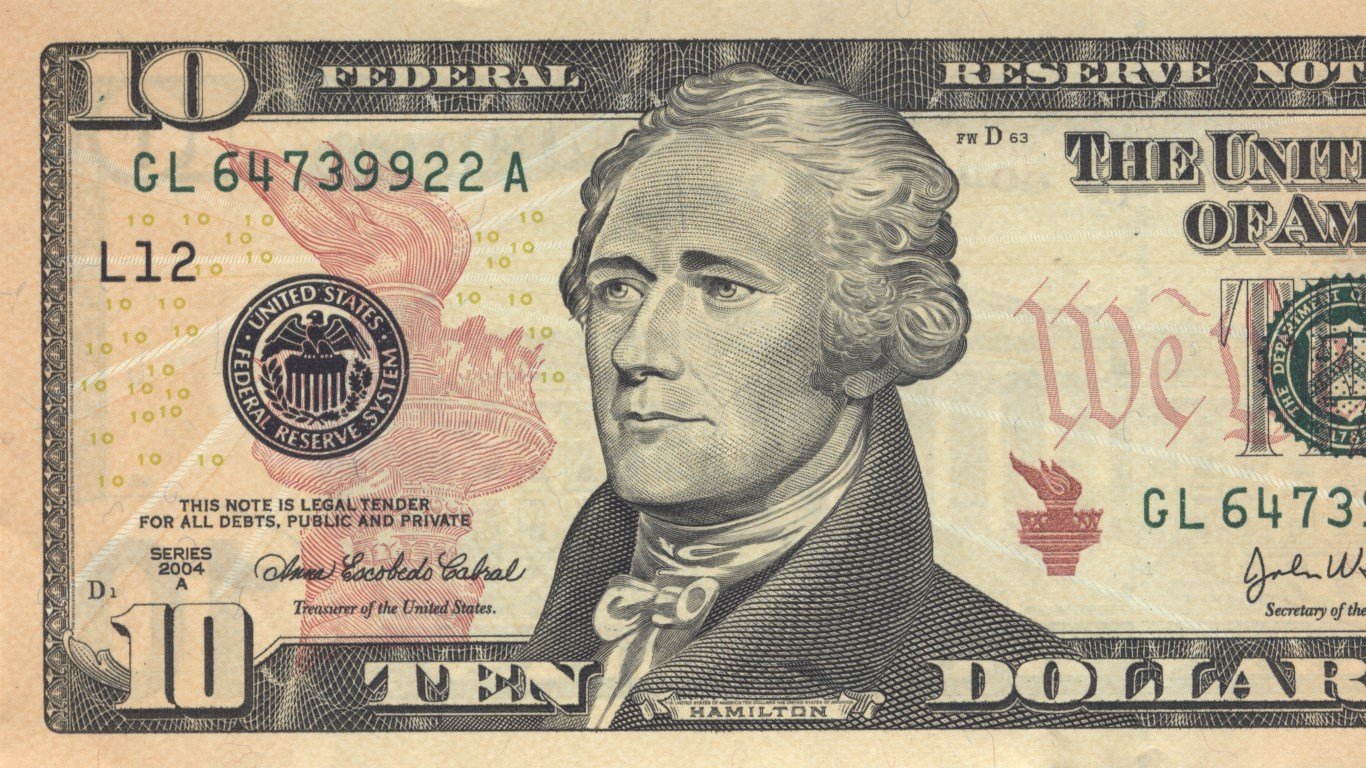

If any investor has stood the test of time, it is Warren Buffett. For years, the “Oracle of Omaha” has had a rock-star-like presence in the investing world. His annual Berkshire Hathaway shareholders meeting draws literally thousands of loyal fans who are investors. Known for his long buy-and-hold strategies and his massive portfolio of public and private holdings, he remains one of the preeminent investors in the world.
[in-text-ad]
With the market posting one of the worst first-half years in decades and inflation raging at the highest levels in 40 years, something is going to have to give at some point. What seems like a given now is that the Federal Reserve will raise interest rates by another 75 basis points in July.
The chatter across Wall Street from economists, equity strategists and, of course, the talking head financial news teleprompter readers is that when it comes to a recession, it is not a matter of if anymore. It is a matter of when. The definition of a recession is two consecutive quarters of negative gross domestic product. First-quarter GDP decreased at an annual rate of 1.5%. Should that happen in the second quarter, that would technically place the economy in recession now. The second-quarter GDP numbers will be released this week.
While rising interest rates can hurt most companies, as the cost of capital jumps, input pricing pressures hurt margins and, more often than not, the increases have to be passed along. Some companies, especially banks and other financials, can thrive as interest rates and profitability are connected, with banks benefiting from higher rates when generating net interest income. This income is the difference between revenues generated by interest-bearing assets and the cost of servicing liabilities. For banks, the assets typically include commercial and personal loans, mortgages, construction loans and investment securities. The liabilities consist primarily of customers’ deposits.
We screened the Berkshire Hathaway portfolio looking for companies that will benefit from yet another big federal funds rate increase. We found six financial stocks that look like solid ideas for the second half of what has been a rough 2022. While all are rated Buy at major Wall Street firms, It is important to remember that no single analyst report should be used as a sole basis for any buying or selling decision.
American Express
This stock has backed up recently and is offering the best entry point since April of last year. American Express Co. (NYSE: AXP) provides charge and credit payment card products and travel-related services worldwide. Its products and services include payment and financing products network services accounts payable expense management products and services, and travel and lifestyle services.
The company’s products and services also comprise merchant acquisition and processing, servicing and settlement, point-of-sale marketing and information products and services for merchants, and fraud prevention services, as well as the design and operation of customer loyalty programs. It sells its products and services to consumers, small businesses, midsized companies and large corporations through mobile and online applications, third-party vendors and business partners, direct mail, telephone, in-house sales teams and direct response advertising.
Shareholders receive a 1.44% yield. Morgan Stanley has a $223 price target on American Express stock. The consensus target is $197.20, and shares closed over 3% higher on Friday at $146.15.
Bank of America
The company posted very solid first-quarter results, and Warren Buffett owns a stunning 1.1 billion shares. Bank of America Corp. (NYSE: BAC) is a ubiquitous presence in the United States, providing various banking and financial products and services for individual consumers, small and middle-market businesses, institutional investors, corporations and governments in the United States and internationally. It operates 5,100 banking centers, 16,300 ATMs, call centers and online and mobile banking platforms.
[in-text-ad]
Bank of America has expanded into several new U.S. markets, with scale across the country positioning it ideally to benefit from accelerating loan growth over the next two years. Moreover, unlike smaller peers, scale allows the bank to increase investment substantially over the next few years without notably jeopardizing returns, driving further market share gains.
Banks almost regardless of size, are a solid idea as the potential for higher net interest income (NII) on portfolio loans to homeowners, farmers and small business owners. NII is one of the strongest tailwinds provided to financial firms in a rising-rate environment, as they can achieve better returns on their cash balances while achieving higher rates of returns from customers who come in for loans.
Shareholders receive a 2.60% dividend. The Goldman Sachs target price is $51, and the consensus target is $47.41. Bank of America stock closed trading on Friday at $32.31.
BNY Mellon
Founded in 1784, this is the oldest company in the Fortune 500, and its stock is offering an incredible entry point for long-term investors. Bank of New York Mellon Corp. (NYSE: BK) provides a range of financial products and services in the United States and internationally. The company operates through the following three segments.
The Investment Service segment offers custody, trust and depositary, accounting, exchange-traded funds services, middle-office solutions, transfer agency, services for private equity and real estate funds, foreign exchange, securities lending, liquidity/lending services, brokerage and data analytics, clearing, investment, wealth and retirement solutions, technology and enterprise data management, trading, corporate trust, depositary receipts, payments, foreign exchange, liquidity management, receivables processing and payables management, trade finance and processing, collateral management and tri-party services.
The Investment and Wealth Management segment provides diversified investment management strategies and distribution of investment products, investment management, custody, wealth and estate planning, private banking, investment and information management services.
The Other segment engages in the leasing, corporate treasury, derivative and other trading, corporate and bank-owned life insurance, renewable energy investment and business exit activities. It serves central banks and sovereigns, financial institutions, asset managers, insurance companies, corporations, local authorities and high net-worth individuals and family offices.
[in-text-ad]
Bank of New York Mellon stock comes with a 3.21% dividend. The $68 Barclays price target is well above the $53.97 consensus target and Friday’s close at $43.60 a share.
Marsh & McLennan
Typically, insurance companies are not affected by increases in interest rates, and this is one of the strongest companies in the industry. Marsh & McLennan Companies Inc. (NYSE: MMC), a professional services company, provides advice and solutions to clients in the areas of risk, strategy and people worldwide.
Its Risk and Insurance Services segment offers risk management services, such as risk advice, risk transfer and risk control and mitigation solutions, as well as insurance and reinsurance broking, catastrophe and financial modeling, and related advisory services, and insurance program management services. This segment serves businesses, public entities, insurance companies, associations, professional services organizations and private clients.
The Consulting segment provides health, wealth, and career consulting services and products. It also offers specialized management, as well as economic and brand consulting services.
Marsh & McLennan stock investors receive a 1.44% dividend. Wells Fargo’s $183 target price is in line with the $182.92 consensus target. The final trade for Friday was reported at $158.83.
Mastercard
This continues to be one of the top credit card players in the world. Mastercard Inc. (NYSE: MA) is a global payments provider that operates one of the largest payment processing networks, connecting billions of consumers, millions of merchants, and thousands of financial institutions in more than 210 countries. Its brands include Mastercard, Maestro and Cirrus.
The company also provides value-enhancing offerings such as loyalty and rewards programs, information services and consulting. According to Nilson estimates, Mastercard is the third-largest global credit and debit network, as measured by volume.
Small businesses and individuals having a hard time entering the digital economy are getting a boost from Mastercard as the need to receive funds electronically and make digital and contactless payments has been underscored by the COVID-19 pandemic.
Mastercard has pledged to connect 1 billion people and 50 million small businesses to the digital economy by 2025. This commitment is an extension of its 2015 promise to bring 500 million people who have no ready digital access to financial products into the system. Rising interest rates allow the banks to charge more to those who keep credit card balances.
Investors receive a 0.63% dividend. Goldman Sachs has set its price target at $460, while the consensus target on Mastercard stock is $431.81. Shares closed at $330.50 on Friday, which was up over 4% on the day.
[in-text-ad]
U.S. Bancorp
This top super-regional bank is another of the higher-paying dividend bank stocks. U.S. Bancorp (NYSE: USB): provides various financial services in the United States through a network of 2,434 banking offices, principally operating in the Midwest and western regions of the United States, as well as through online services and a network of 4,232 ATMs.
The company offers depository services, including checking accounts, savings accounts and time certificate contracts; lending services, such as traditional credit products; and credit card services, lease financing and import/export trade, asset-backed lending, agricultural finance and other products. It also provides ancillary services comprising capital markets, treasury management and receivable lock-box collection services to corporate customers; and a range of asset management and fiduciary services for individuals, estates, foundations, business corporations and charitable organizations.
Thank you for reading! Have some feedback for us?
Contact the 24/7 Wall St. editorial team.
 24/7 Wall St.
24/7 Wall St. 24/7 Wall St.
24/7 Wall St.


